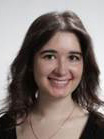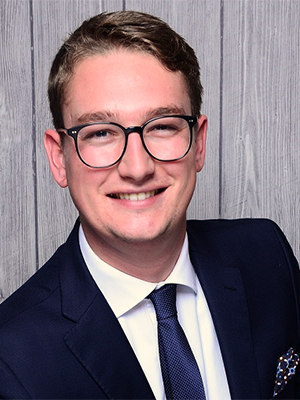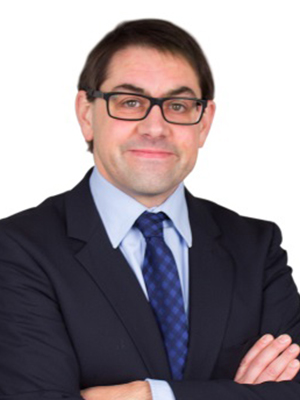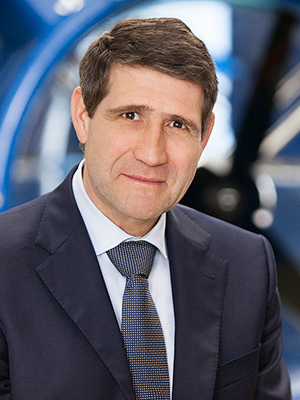Enabling Enterprise Development: A Selection of Best Practices in Harnessing Distributed Energy for Productive Uses
17 January 2017
View Webinar Content
Presentation—Introduction to the webinar and panelists
Presentation—Yasemin Erboy Ruff: Enabling Enterprise Development: A Selection of Best Practices in Harnessing Distributed Energy for Productive Uses
Presentation—David Lecoque: AEEP Energy Access Worksteam
Presentation—Jean Billant: Best Practices: Green Business Area in Mali
Presentation—Tobias Zwirner: Business Opportunities with Solar Systems: Innovations and African Success Stories
Presentation—Karl Kolmsee: Empowering a Rice Mill: Bhamane (India)
Transcript—Webinar audio transcript
In this webinar, the Clean Energy Solutions Center, in partnership with the United Nations Foundation’s Energy Access Practitioner Network and the Africa-EU Energy Partnership (AEEP), kicked off a new Practitioner Network webinar series to share best practices in different geographic and thematic contexts. This first webinar explored the role of distributed energy solutions in enabling and promoting enterprise development in sub-Saharan Africa via a recently launched publication compiled by the Africa EU Energy Partnership, AEEP Energy Access Best Practices 2016. The publication draws on experiences from the private and public sectors, as well as civil society, to showcase a selection of the latest innovative renewable energy projects in Africa. The report includes projects that utilize different technologies and approaches in diverse geographical locations, and the webinar provided a platform to explore three of these case studies looking specifically at the productive uses of energy and energy access as an enabler for enterprise development.
Each speaker in this session showcased his or her organization’s experience, paying particular attention to:
- Unique local energy access challenges faced by the community
- Opportunities to harness distributed clean energy for productive uses in the given context
- Renewable energy solutions and the project outcomes.
The webinar aims to support and incentivize decision makers to continue improving framework conditions for the implementation of business models based on renewable energy solutions. It also intends to enable project developers and financiers to further boost the quality and quantity of rural electrification projects that increase communities’ productivity, expand their range of enterprises, and do so in a sustainable manner that is beneficial to people and the environment alike.
Yasemin Erboy Ruff, Officer of Energy and Climate at the United Nations Foundation, will introduce the topic and provide context to the broader webinar series on best practices.
David Lecoque, Policy and Business Development Manager at Alliance for Rural Electrification (ARE), will provide an introduction to the AEEP Energy Access Work Stream – and contextualize the 2016 best practices report.
Jean Billant, Economic Development Program Officer, Geres, will present on the Green Business Area model, which provides clean energy access for the productive uses of MSMEs in Konseguela, Mali.
Tobias Zwirner, Managing Director of Phaesun GmbH, will speak about the Business Opportunities with Solar Systems (BOSS) solutions project in Somaliland, which specifically targets the commercial sector in non-electrified areas.
Karl Kolmsee, Managing Director and CEO of Smart Hydro Power GmbH, will present a project which powers a rice mill and 30 households in rural India with a hybrid hydro-PV power plant.
The presentations will be followed by an interactive question and answer session with the audience, guided by Jem Porcaro, Senior Director of Energy Access at United Nations Foundation.
Panelists
 Yasemin Erboy Ruff, Officer, Energy and Climate, UN Foundation
Yasemin Erboy Ruff, Officer, Energy and Climate, UN Foundation
Yasemin Erboy Ruff is an Officer with the UN Foundation’s Energy and Climate team, primarily assisting in coordinating efforts to scale up energy access in developing countries. She manages the day-to-day operational coordination and strategic planning of the UN Foundation’s Energy Access Practitioner Network, and she serves as the Energy and Climate team’s focal point for research and writing support on materials related to the energy access issue area. Prior to joining the UN Foundation, Yasemin majored in environmental science at Columbia University and gained her master’s degree in environmental management at the Yale School of Forestry and Environmental Studies, with a focus on climate change and resource management.
 David Lecoque, Policy and Business Development Manager at the Alliance for Rural Electrification (ARE)
David Lecoque, Policy and Business Development Manager at the Alliance for Rural Electrification (ARE)
David heads the policy and business development department at the Alliance for Rural Electrification (ARE), which is the only global business association that represents the entire decentralized renewable energy sector for rural electrification in developing and emerging countries. David works closely on policy and business issues with energy companies, key donors and institutions, financiers and NGOs involved in energy access. In particular, he focuses on consultancy, advocacy, partnerships, project management, B2B/B2Fin matchmaking and events. David also oversees ARE’s research activities and runs its contact database, which comprises more than 26,000 sector stakeholders. Prior to joining ARE, David practiced and qualified as a lawyer at the Brussels Bar, dealing principally with energy and environmental matters in top-tier law firms Liedekerke and CMS. In 2015 he was elected one of Belgium’s 100 most inspiring and sustainable young professionals. He speaks English, French, Dutch and German.
 Tobias Zwirner, Managing Director and Shareholder, Phaesun GmbH, Memmingen/Germany
Tobias Zwirner, Managing Director and Shareholder, Phaesun GmbH, Memmingen/Germany
Tobias Zwirner is the Managing Director of Phaesun GmbH, a sales, service and installation company of off-grid photovoltaic and wind power systems. Since its foundation in 2001, Phaesun has focused focuse on rural electrification, solar water pumping systems and the use of off-grid renewable energies for industrial applications. The main target regions are Africa, Latin America, Europe and the Middle East. Phaesun is working closely with international NGOs and GOs as well as with local partner companies in the target countries with the aim to provide energy to non-electrified areas. The Phaesun Group has daughter companies and representations in France, Dubai, Eritrea, Ivory Coast and Panama. From 1989 until 2001, Zwirner worked for Steca Elektronik GmbH, developing the department for electronics for off-grid PV applications and collecting first experiences with rural electrification projects in Mongolia, Eritrea, Sudan and Ethiopia.
 Karl Kolmsee, Managing Directo/CEO, Smart Hydro Power GmbH
Karl Kolmsee, Managing Directo/CEO, Smart Hydro Power GmbH
Dr. Karl Kolmsee studied agricultural and philosophy at the universities of Hamburg and Goettingen, Germany. After his PhD, he has spent most of his professional career in the energy business—first as consultant at A.T. Kearney and later as manager at E.ON, Europe’s largest private utility, and member of the board at Schmack biogas, one of the pioneers of the biogas market in Europe. In 2009, Karl Kolmsee was nominated professor for energy management at Applied University of Kufstein, Austria. His main areas of academic work are international energy markets and renewable energy. In 2010, he founded Smart Hydro Power to focus on design and commercialization of kinetic pico-hydro power systems, with a focus on rural electrification for emerging markets like India, Colombia or Nigeria.
